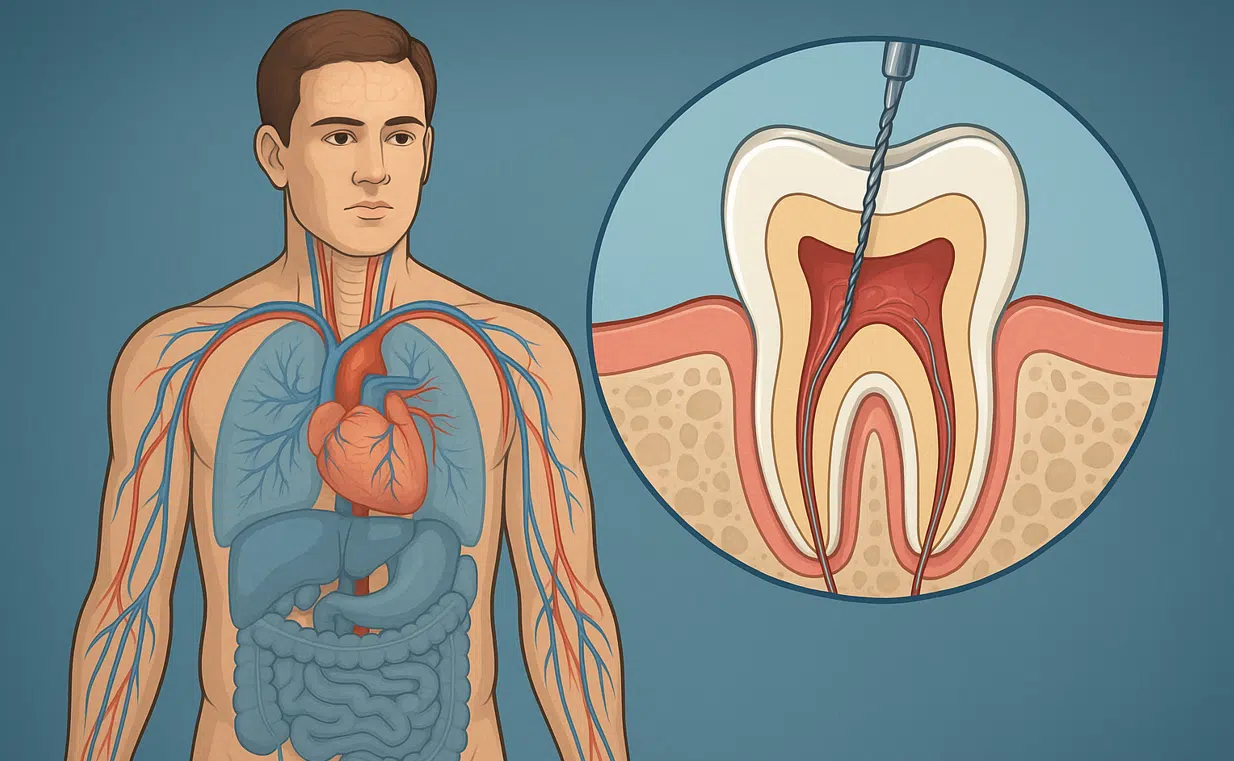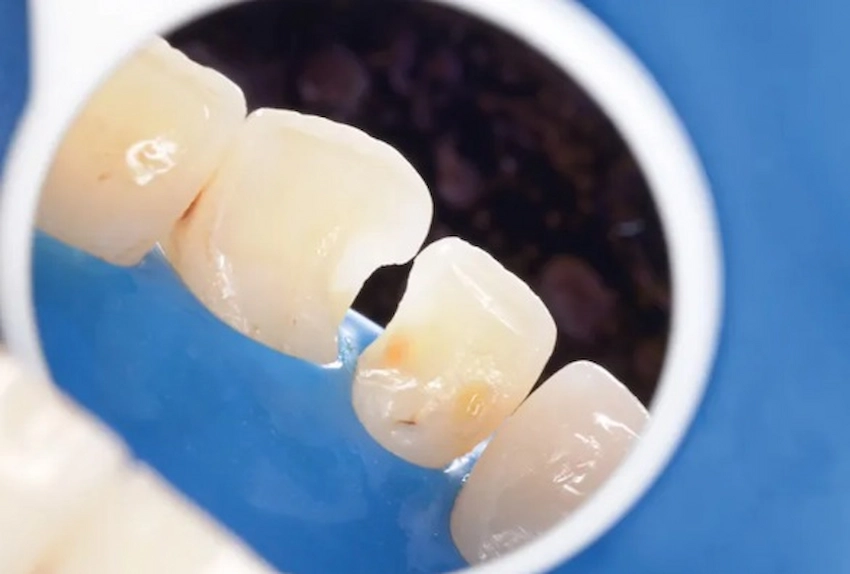🦷 Is Root Canal Can Rise Body Temperature?

Usually, a root canal is a typical dental treatment that disinfects an infected area and maintains the live tooth. However, many patients are anxious that it might affect their general health. The most frequent question is related to the concept: “Can a root canal treatment give you a fever?” Put simply, the answer is: “Only if there is a very active or widespread infection, and still, it is not the treatment that causes the fever, but really the untreated infection that might already be present.”
Discover this and some other queries that refer to the root canal and are very closely related to this particular problem, with a point to clarify, especially the widely spread misconceptions that root canals are damaging for the body or even “toxic.”
Are Root Canals Bad for the Body?
No, root canals are not harmful to the body—in fact, they are meant to keep you safe from infections by eliminating the Infected tissue and stopping the bacteria from breeding. A successfully operated root canal procedure arrests further advancement of the infection, anesthesia makes the pain to become absent, and in the majority of cases, it helps in not taking out the tooth or having future complications.
The infection-fighting immune system will not be threatened by the dental practice of root canals and there are no expressed dangers of transmission of diseases. On the other hand, if a tooth with no complications is left unattended, a greater threat of health threat arises.
Are Root Canals Bad for the Body?
Being a version of the mistaken myth is one of the most well-known types. The notion that root canals “are bad” is usually a result of the imperfect knowledge of old medicine theories, for instance, the “focal infection theory,” which belonged to the beginning of the previous century.
Today, the procedure is safe, modern, and a familiar one to the various regions of the world; dentists procedure it as a routine. The equipment that is made sterile, materials which are biocompatible, and the use of the imaging, which is digital, all these are done to reduce the risks and better the results.
Are Root Canals Toxic to the Body?
No, the fear of root canals being toxic is unfounded. This is a myth that has been circulating for some time, suggesting that the untreated microbial load in the tooth can release toxic substances and cause a disease that is persistent in nature.
The reality looks different:
- The root canal system is thoroughly cleansed and disinfected.
- The tooth is filled with bio- and inert materials that allow no harmful reactions with the microenvironment.
- Once the patient visits a dentist for a check-up, and the crown, if necessary, is fitted, the issue hardly recurs.
There isn’t any scientific proof that justifies bacteria from root canal-treated teeth as toxic leakers that cause organ damage.
Can Your Body Reject a Root Canal?
The idea may arise due to the confusion with organ or implant rejection, which involves the immune system recognizing and attacking the foreign tissue.
In contrast:
- When a root canal is performed, the existing tooth is used with no need for any other material to be implanted.
- There is no such thing as organ or prosthetic rejection in this case.
- Some possible reasons that cause the treatment to be unsuccessful include the presence of bacteria or the breakdown of the restoration. However, these are just complications instead of rejections and require further treatments or alternative ones.
Then, it is not a question that this is simply a rejection, but there is something else that has appeared and it is a complication and hence may need a different treatment or be treated again.
How Does an Infected Root Canal Affect the Body?
When a root canal is infected, or if the infection persists after the treatment, the symptoms may remain local and cause pain, swelling, and even abscesses. The spreading of the resulting dental infections widely is an occurrence that only happens in some cases and this turns into the spread and formation of, among other things:
- Systemic inflammation
- Fever
- Swollen lymph nodes
- In very rare cases: sepsis or infection reaching the heart (endocarditis), especially in immunocompromised patients
For this reason, it’s important to keep up with the treatment your dentist prescribed and use a good crown or filling to protect your tooth.
Can the Body Reject a Root Canal?
Almost always, the answer is no — the body does not “reject” a root canal. Still, it’s possible that issues arise as a result of:
- A missed canal or incomplete cleaning
- A fractured tooth post-treatment
- Bacterial re-entry due to a leaking filling or crown
These are all mechanical or procedural problems and are not due to the immune system of the body. Fortunately, most of these problems are resolved by additional treatment and corrective procedures.
Conclusion
Root canals, in fact, are not harmful, toxic, or rejected by the body. Moreover, they become instrumental in situations where the saving of teeth and the halting of the spread of infections are threatened. You might suspect that fever and general malaise could be the symptoms of infection, but it is about the treatment itself that has nothing to do with the reason. Always let your dentist evaluate you properly and be sure that modern root canal therapy is safe, working, and considered an essential aspect of the long-term health plan of teeth and mouth.
Frequently Asked Questions About Root Canals and Your Body
Root canals do not reduce the immunity of a person. Moreover, these basically cleanse the teeth from the infection and thus enable the body to recover with less effort, lessening the need for the body’s immune system to work extremely hard in the case of an untreated abscessed tooth.
In contrast to pulling the natural tooth, the root canal is the preferred option for safeguarding the health of the teeth for a longer time in most cases. Apart from the fact that natural teeth are useful in maintaining the foundations and supports, chewing is easier, and teeth are kept in the right place, and there is no implant or denture that can fully give these advantages.
Only if a severe infection existed, you still feel fatigued, permitting your body to recover. Nonetheless, if a root canal has been done properly, there are no systemic problems with the body to be expected; thus, any sign of fatigue generally links to the source of infection rather than the treatment itself.




